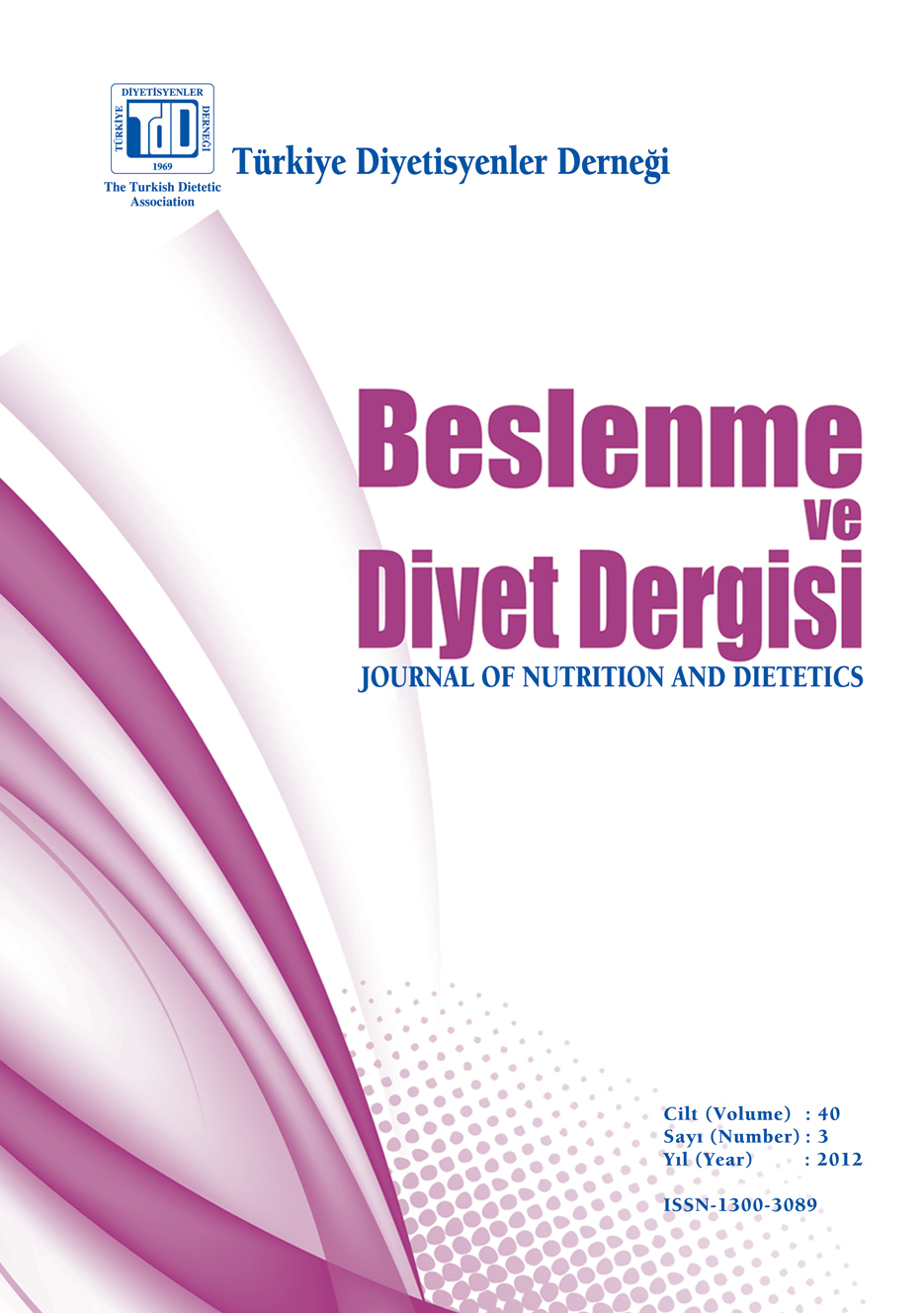Evaluation of University Students’ Breakfast Habits
Keywords:
Breakfast, university students, nutrition educationAbstract
Aim: In accordance with the principles of adequate and balance nutrition, breakfast is very important for the protection of health in whole of life. This study was planned to determine the breakfast habits of university students. Subjects and methods: This study was done on university students who were eighteen years of age and older, living in Ankara during 2009-2010 academic year. Four hundred people (43.0% males and 57.0% females) were participated to this study. The breakfast habits of students were determined by questionnaire forms with face-to face interviews. Results: The mean age of students ( x ±SD) was 21.3±1.8 year, duration of their education was 14.7±1.8 years. The average height, weight and Body Mass Index (BMI) values of students were 169.4±9.4 cm, 64.5±12.3 kg and 22.4±3.1 kg/m2, respectively. Out of total, 19.5% of participants were from the department of nutrition while 80.5% of participants were the students of the other departments and 40.2% of students reported that they previously had nutrition education. Students have stated television (70.5%) scientific articles (53.3%), internet (37.8%) and books (33.3%) as their highly trusted resources of nutrition and diet. When the students’ skipping meals situation was assessed, the most neglected meal was found to be breakfast (54.5%). The students reported that the reason behind their skipping meal were lack of time (50.2%) and wake up late in the morning (35.7%). When the beverage consumption at breakfasts were in accordance with nutrition education background, tea was found to be the most favourite beverage and milk consumption varies in accordance with nutrition education. Totally, 37% of the students who had nutrition education consumed milk at breakfast. Otherwise, milk consumption ratio of uneducated students in breakfast was 28.9% (p<0.05). Conclusion: Breakfast is the most important meal of the day. This study determined that the breakfast habits of the students who had a nutrition education were higher than the students who did not have any nutrition education, although it is not statically significant. Nutrition education and increasing awareness on adequate and balanced nutrition and having breakfast are needed.

